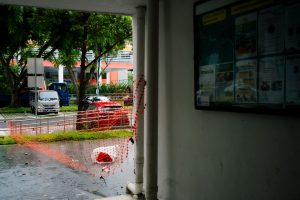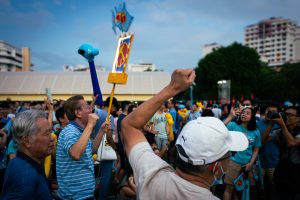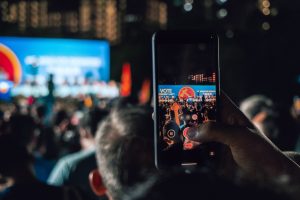Top image: Pixabay
On Tuesday, 23 November, the Minister for Finance, Lawrence Wong, and I spoke at the IPS-RSIS Conference on Identity. He was a guest of honour, delivering the opening speech with a follow-up dialogue and Q&A; I was a respondent on a panel. He had an hour on stage to disclose how the nation’s leadership views identity politics; I had four minutes via Zoom.
Still, I’ve been asked to share a commentary on his speech and I can see why some insight would be appreciated since The Straits Times and TODAY have given us two wildly different perspectives on the same talk. Was Wong issuing a warning (see ST: “New forms of tribalism can take root and affect politics in Singapore”)? Or was he opening up for reform (see TODAY: “Concerns of groups such as women, minorities, LGBTQ are important, cannot be dismissed as ‘illegitimate or exaggerated’”)?
ADVERTISEMENT
If you ask me, ST’s headline is more accurate. Lawrence Wong spent most of his talk elaborating on the dangers of identity politics, which he claims to have sparked racial riots in years long past and may fuel culture wars in the future. At one point, he described tribalism as “an ancient narcotic,” which makes it sound stupendously badass.
There’s also the usual celebration of Singapore’s status quo (“different tribes have lived peacefully for more than half a century here”) and issued the standard warning that the situation is critically unstable (“This harmonious state of affairs will always be on a knife-edge”).
Now, it’s true some progressive statements were made. He mentioned “LGBTQ persons feeling that society does not accept them” as a valid concern—this is original, indeed daring, content that we have not heard before from a government leader. Or that “we cannot—in the name of avoiding the dangers of identity politics—deny the rights of a variety of groups to organise themselves, to gain recognition for their concerns, or seek to improve their conditions and well-being.”
There’s even promise that “we will never let any group feel unheard, ignored or excluded.”
But I don’t necessarily believe this speech signals a radical new turn in government policy, even though folks like political scientist Elvin Ong are predicting that it’s heralding an upcoming repeal of Section 377A. If anything, it’s a missed opportunity because I believe that Wong is more than able, and had the platform at this conference, to start a dialogue on how Singapore can shift policy to embrace those among us who feel sidelined by policy.
Still, my sense is that those of us who’ve historically felt “unheard, ignored, or excluded” are going to have to bear that burden a little longer.
A distracting history lesson on tribes
Suppose you’ve only read the Straits Times’ edited reprint of Wong’s speech. In that case, you’d have missed out on an eccentric intro: an ancient Roman history lesson, explaining the origins of the words “tribe” (from the voting unit, “Tribus”) and “citizen” (from the invention of the Roman citizen, “civitas Romana”). It’s a fun opportunity to show off a good grasp of general knowledge and Latin, and I won’t begrudge him that.
But there’s a problem with Lawrence Wong’s fascination with history—simultaneously seduced by tradition and nostalgia while also determined to defend the progress of present-day Singapore. There are repeated contradictions in assessing tribalism in the past versus the present.
Tribalism is thousands of years old, he says. But tribalism is also a modern phenomenon, reborn through “new forms of identity politics”. Tribalism was good when it inspired Chinese, Indian, and Indonesian nationalism in the 1940s, paving the way for Singaporean nationalism. But tribalism is bad now because it could lead to Singaporean disunity. Tribalism is frowned upon now because it arises out of the loneliness caused by individualism. But tribalism was worse in the distant past when it caused the bloody Hokkien-Teochew riots of 1854.
He does, at one point, attempt to lay down some definitions for us. “Tribalism may feel like community,” he says. “But the two are not the same. Community is about inclusive connections, and it’s based on mutual affection. Tribalism is inherently exclusionary, and it’s based on mutual hate: “us” versus “them”, “friend” vs “foe”.”
But these distinctions are highly artificial. In real life, as everyone knows, human societies tend to exhibit both inclusion and exclusion—any community may be called a tribe, and any tribe a community. Nor is there anything consistently negative about the term “tribe”. Some of us remember how, in 1996, PM Goh Chok Tong called on Singaporeans to embrace “tribes” as one of the three T’s of Singapore’s success.
The danger of a self-contradicting idea is that you can hear what you want to hear, based on, precisely, your tribe. Should you be part of a majority that is uncomfortable with minority groups, you can take comfort from Wong’s speech that you are already a nation while the others are tribes.
Should your tribe be a minority—in other words, no chance there of mistaking yourself for a nation—you would hear that your tribe should allow itself to be absorbed into the nation.
Unfortunately, those ensconced in the majority hear nothing in this distracting history lesson that would prompt them to different behaviour.
Unhelpful suggestions
Perhaps you think I’m giving Lawrence Wong a hard time—this is a complex world, and tribalism’s a complex issue. So, instead, let’s take a look at his practical suggestions on how to heal the divides between us.
First, he says we’ve got to “strengthen our human relationships”. OK, that works.
Second, we must “avoid stereotyping groups of people or assuming that each community is monolithic and homogeneous.” He exhorts us to recall that “regardless of our gender or sexual orientations, regardless of the cause we champion, we are all Singaporeans, first and foremost.”
Here, is where he is exclusionary.
ADVERTISEMENT
As my fellow respondent, AWARE Executive Director Corinna Lim pointed out at the panel, 40% of Singapore’s resident population doesn’t hold Singapore citizenship. Non-Singaporeans, including Permanent Residents, are our neighbours, family members, teachers, and essential workers. Not even all the speakers at the IPS conference were Singaporeans. So Wong’s gone against his own directive, stereotypically assuming all Singapore residents are homogeneously Singaporean.
The message to us is to avoid the problems of tribalism by identifying with the correct tribe—that of the Singaporean citizen. Such a message needs to be balanced out with strong language on the ugly flip side of national pride: xenophobia.
Lawrence Wong does concede, however, that “we can and must do a lot more to integrate foreign workers in our midst” but only in his Q&A when brought up by an audience member. This is a phenomenon that hurts citizens too, as my other fellow respondent, Minority Voices co-founder Sharvesh Leatchmanan, explained. As an Indian Singaporean, he finds that his nationality is increasingly being questioned by others who are keen to police who does and doesn’t belong on this island.
But let’s move on to the third suggestion: to remember that “trade is in our blood”, i.e. that we should be open to cooperating with different cultures and communities because of “our instinctive desire to explore the unknown”.
It’s an on-brand metaphor, considering Lawrence Wong’s portfolio as Minister for Finance. But it’s wanting as a representation of the interaction between today’s identity groups. How does the invitation to “trade” work with economically disenfranchised groups?
If we’re talking about migrant workers or the disabled, does it make sense for us to relate to them on the grounds of “reciprocity, trust, and mutual benefit”? Is it fair to look at someone who’s been marginalised by society and say, “Let’s be friends, as soon as we can figure out how to profit from each other”?
This suggestion assumes fair trade conditions, perfect knowledge between all parties, and that we are all moved by the profit motive. The first two do not exist in identity politics; while the non-ubiquity of the last is a very reason why we are even having a discussion on identity politics.
Privilege vs power
Besides logic, there’s another aspect of Lawrence Wong’s speech that begs closer inspection. It’s the way he misrepresents specific terms. For instance, “Chinese privilege”. He calls this a mere stereotype: a sloppy overgeneralisation of the diverse experiences of Chinese Singaporeans, who may be rich or poor, male or female.
But the term’s much more nuanced than that. It’s grounded in sociology, and, as a Mothership article explains, it’s a way to encapsulate how Chinese folks don’t usually face the same race-based obstacles as ethnic minorities in Singapore.
By trivialising concepts associated with social justice, Wong—consciously or subconsciously—seems to be avoiding the fact that different groups have different power levels. When he describes the government serving as “a fair and honest broker”, he’s constructing a utopian scenario where every tribe has an equal amount of influence and numbers, where no group is ideologically committed to the erasure of another.
A hint of redemption
So do I think Wong’s speech was absolute rubbish?
Not quite. He’s made statements that we need to hold on to. He’s said that groups have the right “to organise themselves”; that the government “will never let any group feel boxed in or ostracised.” I hope that I am right to read this as an encouragement to organise, speak up, and take action for under-represented groups and causes.
Plus, I haven’t mentioned Lawrence Wong’s fourth suggestion: “as a society, we must continue to give all Singaporeans reason to hope and a fair chance to have a good life.” This isn’t just an abstract expression of goodwill; he promises “targeted support with universal coverage for essential items”—a genuine effort to reduce inequality. It’s an exceptional commitment, and I’m impatient to learn the details and see it enacted.
And maybe I’m going a little crazy after parsing this speech for so long, but I think I’ve found something profoundly redemptive to it. Yes, there are layers of frequencies, sounding differently to different ears, but there is a driving melody. If you put aside the inconsistencies, at the core of his talk you’ll find a fundamental opposition towards conservatism.
When Wong defines community as being “about inclusive connections”, and condemns tribalism as “inherently exclusionary”, he’s essentially telling us to be ruled less by taboos and more open to difference. He could well be praising the arts community, which has always been focused on dialogue and diversity. Or he may be speaking of the queer community, which has had to carry on constant negotiation to include all its members—not just gay, lesbian, bisexual and transgender, but now pansexual, demisexual, asexual, nonbinary, as well as a range of races, religious perspectives, classes, and political views.
Still, as Corinna Lim said, it’s not enough to embrace a national tribal identity to unify everyone in Singapore. We need to endorse a common set of values. Fortunately, Singapore’s got an official set of five ideals, represented by the five stars on the flag. They stand for democracy, peace, progress, justice, and equality—pretty inspiring stuff.
ADVERTISEMENT
The conservative tendency, which is all too common in Singapore, is to focus only on peace and interpret it as silence, submission, and obedience. But if we want everyone to feel counted, we must start talking more about the other national tenets: democracy, justice, and equality. And if we are brave enough to push for something better than the status quo—that’s progress.
As it is, many parts of the speech make little sense. It’s confusing and at parts, internally contradictory.
But if we—and I include both activists and the government here—work to reform this country a little more, then it can do something better than make sense.
It can make a bloody difference.






